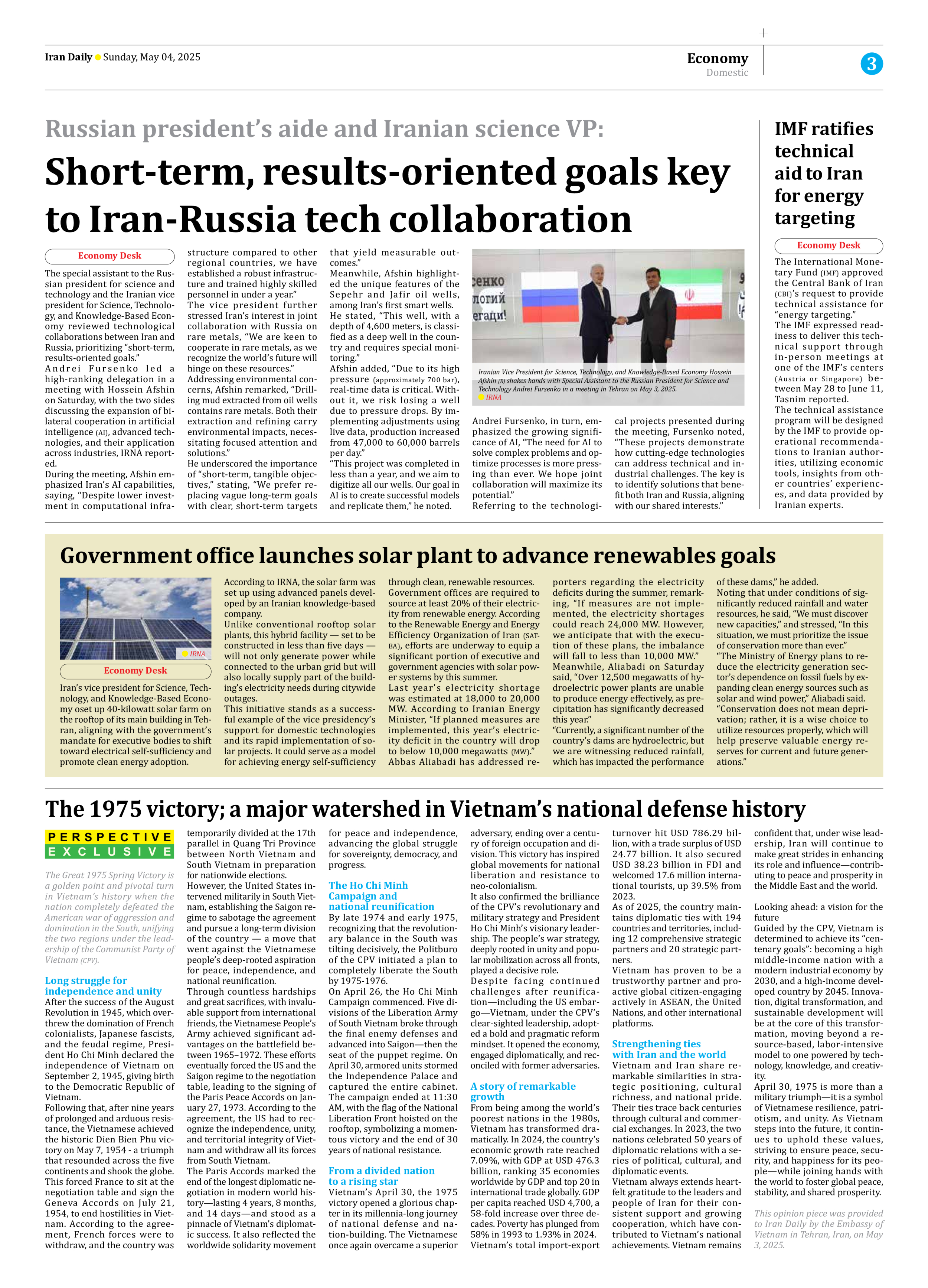
Government office launches solar plant to advance renewables goals
Iran’s vice president for Science, Technology, and Knowledge-Based Economy oset up 40-kilowatt solar farm on the rooftop of its main building in Tehran, aligning with the government’s mandate for executive bodies to shift toward electrical self-sufficiency and promote clean energy adoption.
According to IRNA, the solar farm was set up using advanced panels developed by an Iranian knowledge-based company.
Unlike conventional rooftop solar plants, this hybrid facility — set to be constructed in less than five days — will not only generate power while connected to the urban grid but will also locally supply part of the building’s electricity needs during citywide outages.
This initiative stands as a successful example of the vice presidency’s support for domestic technologies and its rapid implementation of solar projects. It could serve as a model for achieving energy self-sufficiency through clean, renewable resources.
Government offices are required to source at least 20% of their electricity from renewable energy. According to the Renewable Energy and Energy Efficiency Organization of Iran (SATBA), efforts are underway to equip a significant portion of executive and government agencies with solar power systems by this summer.
Last year’s electricity shortage was estimated at 18,000 to 20,000 MW. According to Iranian Energy Minister, “If planned measures are implemented, this year’s electricity deficit in the country will drop to below 10,000 megawatts (MW).”
Abbas Aliabadi has addressed reporters regarding the electricity deficits during the summer, remarking, “If measures are not implemented, the electricity shortages could reach 24,000 MW. However, we anticipate that with the execution of these plans, the imbalance will fall to less than 10,000 MW.”
Meanwhile, Aliabadi on Saturday said, “Over 12,500 megawatts of hydroelectric power plants are unable to produce energy effectively, as precipitation has significantly decreased this year.”
“Currently, a significant number of the country’s dams are hydroelectric, but we are witnessing reduced rainfall, which has impacted the performance of these dams,” he added.
Noting that under conditions of significantly reduced rainfall and water resources, he said, “We must discover new capacities,” and stressed, “In this situation, we must prioritize the issue of conservation more than ever.”
“The Ministry of Energy plans to reduce the electricity generation sector’s dependence on fossil fuels by expanding clean energy sources such as solar and wind power,” Aliabadi said.
“Conservation does not mean deprivation; rather, it is a wise choice to utilize resources properly, which will help preserve valuable energy reserves for current and future generations.”







